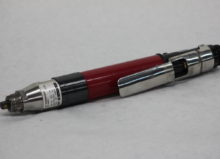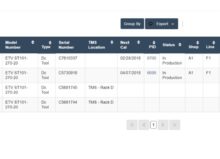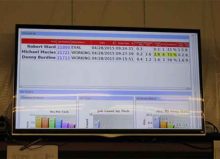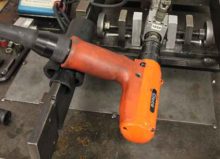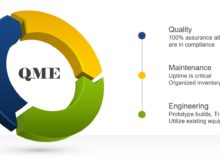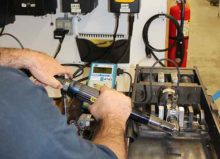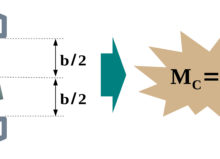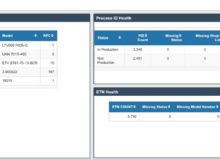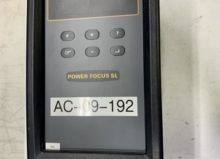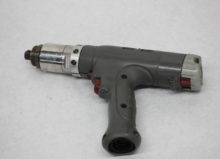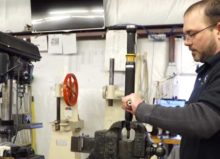How to Comply With ISO 17025 Torque Calibration Standards
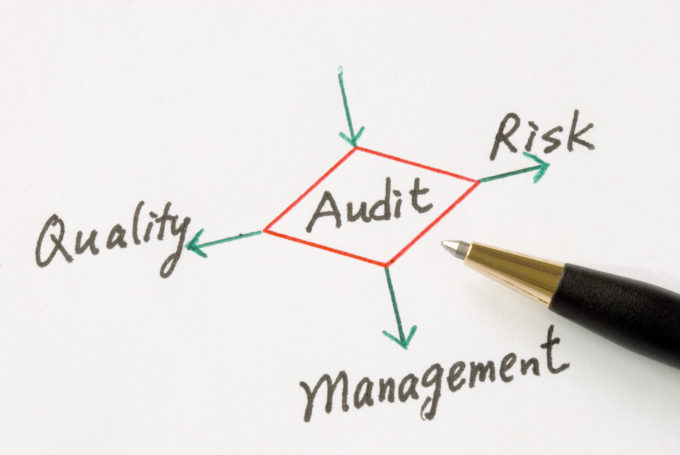
An ISO 17025 certification may not be an industry requirement, but it does establish proof of a company’s competence and overall commitment to quality. Companies that attain ISO 17025 accreditation must adhere to a wide range of quality standards and processes. They must also prepare for annual audits performed by accrediting bodies like ANSI/ANAB.
Preparing for these audits is a time-consuming process that requires a company-wide commitment. Additionally, companies that choose to perform their calibrations in-house rather than assigning the task to a third-party company must also be extremely vigilant, as one single error can lead to loss of accreditation.
At Encore Systems, we understand how important your accreditation is. In this article, we’ll dive more into ISO 17025 and what it is, as well as give you general tips and best practices on how to stay compliant.
What Is ISO 17025?
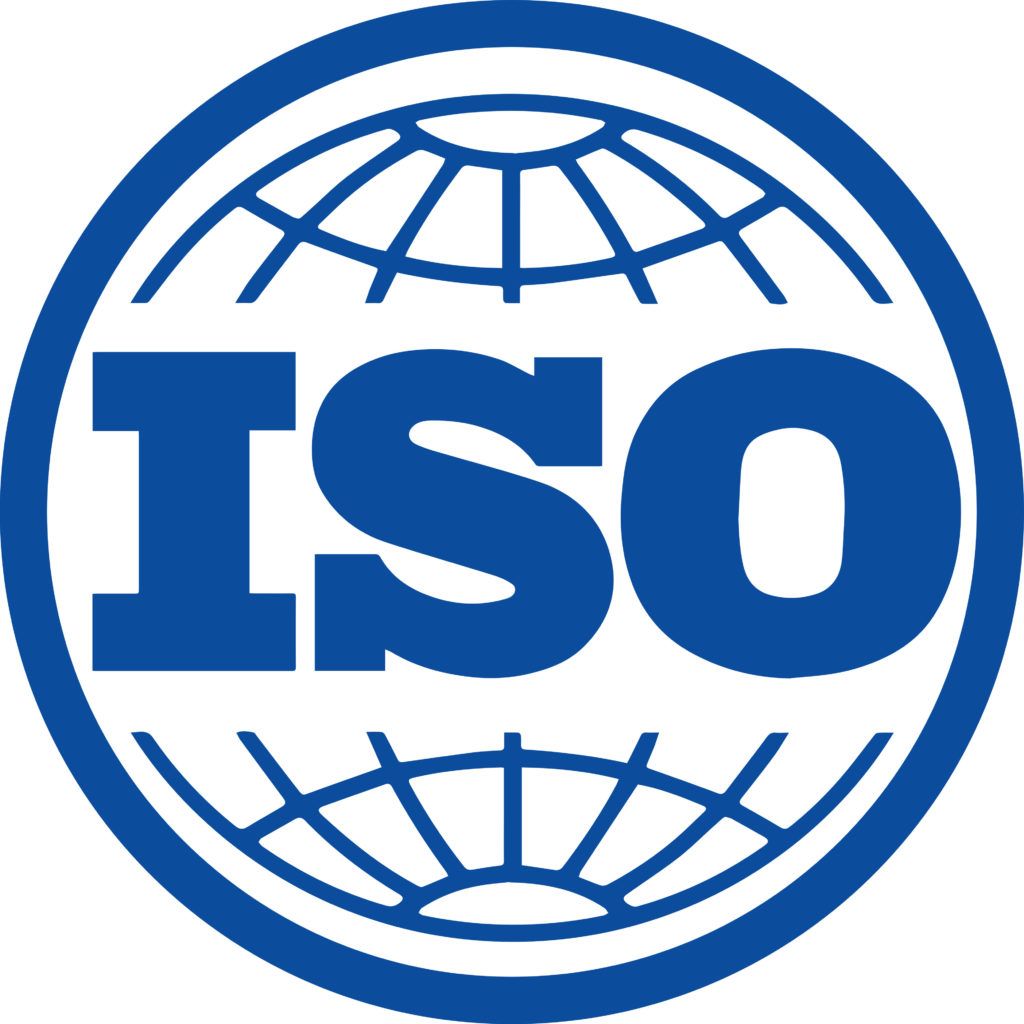
Developed by the International Standard Organization, ISO 17025, or ISO/IEC 17025:2017, is an international standard that defines the competencies, requirements, and processes required by calibration service providers and testing laboratories. This standard features a relatively broad set of criteria that can be applied to multiple industries.
The ISO 17025 accreditation specifically covers the processes, procedures, and guidelines required to produce consistent and valid calibration certificates and test results. This demonstrates a facility’s commitment to quality, precision, and repeatability. The purpose is to generate an unquestioned result, so customers and their end-users can easily trace a product’s calibration lineage.
Manufacturers in high-precision industries rely upon ISO 17025 torque calibration certificates to validate and certify that the tools used in their manufacturing processes adhere to widely-accepted international standards.
Why Is Compliance Important?
An ISO 17025 accreditation for torque calibration is essential because it provides customers peace of mind knowing their tools and/or equipment are correctly calibrated and that using them within their assembly processes will produce safe and accurate results.
Accurately calibrated tools can also decrease lead time as they help to ensure process repeatability. Lastly, mistakes that occur during the assembly process (such as applying too much or too little torque) can lead to dangerous and costly problems down the road.
So, staying compliant with ISO 17025 torque calibration standards helps to ensure process repeatability, safety, and accuracy.
Common Compliance Issues & How to Avoid Them
Some of the most common ISO 17025 compliance issues include:
- Failing to Ensure Validity: When you’re being audited, you must prove that all results obtained by your process are valid. Be sure you have a list of activities or procedures you follow to ensure validity. Also showcase that all test results/measurements feature an uncertainty of measurement.
- Omitting Measurement Uncertainty: Related to validity, you absolutely need to determine measurement uncertainty. This is a critical requirement that customers must see on their calibration certificates.
- Failing to Ensure Impartiality: The overriding goal is to produce valid, unbiased results. This means your entire team must commit themselves to remaining impartial/objective at all times. During your internal audits, identify and address any potential risks to impartiality. If you don’t already have an impartiality policy, be sure to create one and have all laboratory personnel sign it to ensure compliance.
- Poor Documentation: Ensure your team properly documents all calibrations, repairs, and other maintenance tasks. ISO 17025 requirements are stringent, and not correctly documenting tasks is problematic at best.
- Ignoring Internal Audits: Don’t make the all-too-common mistake of waiting for an external ISO-accredited governing body to uncover ISO compliance issues. Performing your own internal audits ensures your team uses the correct processes and follows established calibration procedures to produce traceable results.
- Not Inspecting Calibrated Tools: Periodic inspections of calibrated tools are another way of ensuring compliance and accounting for the unforeseen. According to Clause 6.4 of ISO 17025, all equipment needs to be thoroughly inspected after calibration, repairs, or maintenance tasks are performed.
Other Tips for Staying Compliant
As we’ve previously mentioned, maintaining your ISO 17025 accreditation ensures you’re correctly adhering to international standards and are capable of producing consistently valid results. Here are some additional tips to ensure compliance:
- Always Be Prepared for External Audits: Create a checklist for your own internal audits, and then use your internal audits to identify potential issues long before a governing body performs their own external audit.
- Adopt a Tool Management System: Your team should be able to pull up any information regarding calibration dates for every tool at their disposal. A tool management system helps you record online and offline tools, information regarding repairs and maintenance issues, record calibration data, and so much more. If a tool management system isn’t part of your overarching quality management system/QMS, you need to reconsider.
- Invest in an Accredited Third-Party Calibration Service Provider: As a manufacturer, your main responsibility is to quickly and accurately produce mass quantities of a product. This itself takes time. If you’re also worried about maintaining ISO 17025 compliance, working with an accredited third-party calibration service provider can help you save time and stress.
- Document Everything: One of the best practices you can follow is to document everything. All records of prior calibrations and test results, torque tool repairs and maintenance, inspections, etc. need to be recorded in your QMS. If you’re not sure if you need to record a particular piece of information, record it anyway. It’s better to be over prepared than underprepared.
Example Internal Audit Checklist
Please note that this checklist is not exhaustive. ISO/IEC 17025 contains many clauses—we recommend getting familiar with them and creating a similar checklist to help you run your own internal audits (and prepare for external audits). Additionally, because there are many ISO accrediting bodies, you also need to become familiar with policies relevant to your specific accreditation organization.
General Requirements
✔ Remove all instances of impartiality/bias in the calibration laboratory
✔Any client-related information is kept confidential from third parties
Structural Requirements
✔ Clearly establish management and management responsibilities
✔Outline and document all laboratory procedures
Resource Requirements
✔ All laboratory employees/personnel have been trained on procedures and the quality management system
✔Environmental conditions do not affect the validity of test results
✔ Ensure environmental conditions are within standard
✔ All equipment being used by personnel meet standard requirements and has been verified
✔ Equipment has been well-maintained/calibrated
✔ A measurement of uncertainty has been established
Process Requirements
✔ Follow current/up-to-date methods and procedures
✔ Keep verification records
✔ Method has been verified by an accrediting body
✔ Have a sampling plan/method
✔ Preserve sample records (date and time of sample, personnel who sampled, description of sample, environmental conditions, etc.)
✔ Have handling instructions for calibrated equipment
✔ Have a management system
✔ Keep technical records for all activities
✔ Evaluate equipment for uncertainty
✔ Evaluate measurement uncertainty when testing
✔ Check validity of results
✔ Ensure a process is in place for nonconformance
✔ Retain all reports
Management System Requirements
✔ Ensure your QMS meets ISO 17025 standards
✔ Showcase how items are assigned, tracked, and verified through the QMS
✔ All documents are in the management system and accessible by personnel
Stay Compliant With Help From Encore Systems
Encore Systems is a North American industrial repair company specializing in DC torque tools. We’re also an ISO 17025-accredited torque calibration service provider. As an ISO-certified company, we understand what’s needed to maintain compliance—when we calibrate your torque tools, we use an automatic tracking system that permanently stores information needed for external audits. We also offer a proprietary QME tool management software that allows you to store calibration data, repair information, maintenance due dates, and more.
If you have general questions about ISO 17025 torque calibration standards or would like to learn more about how we can help you, please fill out our online form today.


